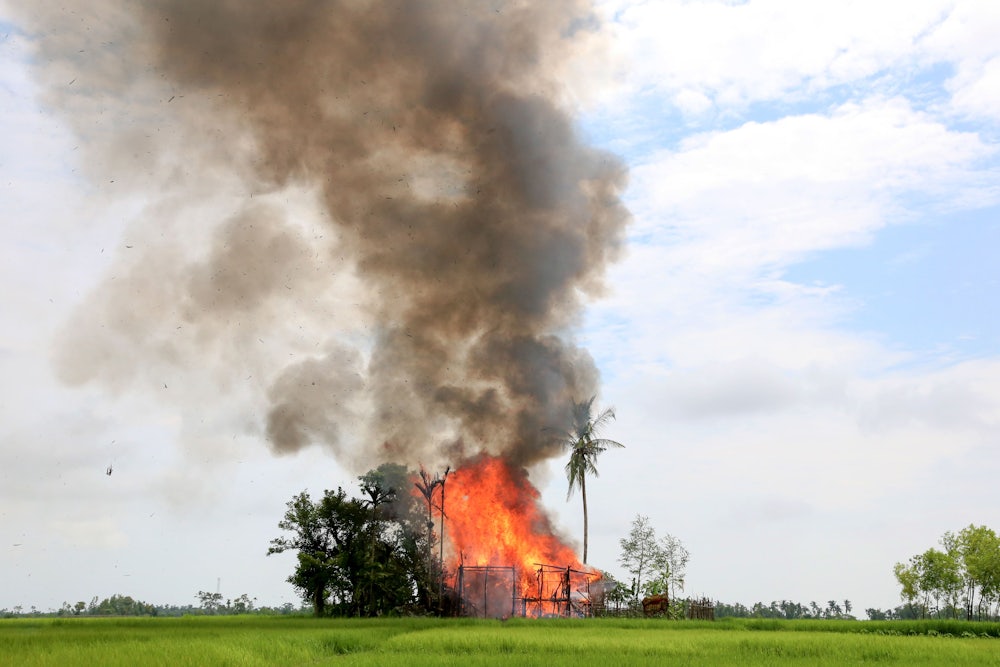The optimism surrounding tech’s potential for spreading freedom and democracy was hard-wired into the Arab Spring. In its early weeks and months, talk of technology and revolution were inseparable. On February 11, 2011, the day that Hosni Mubarak resigned as president of Egypt after 30 years in power, CNN’s Wolf Blitzer asked Wael Ghonim, one of the leaders of the Egyptian revolution, “Tunisia, then Egypt, what’s next?”
“Ask Facebook,” Ghonim replied. In the same interview he gave Blitzer a recipe for revolution: “If you want to liberate a government, give them the internet.”
Today things look rather different. With few exceptions, repression has returned to the Middle East and North Africa, as dictatorial regimes have learned to master digital technology. Other authoritarian countries—notably Russia and China—have learned valuable lessons from the Arab Spring and are now closely monitoring and censoring social media platforms. In the United States, we’ve spent the last 16 months trying to understand a Russian disinformation campaign that used omnipresent platforms—Google, Facebook, Twitter—to undermine the presidential election.
And on Monday, United Nations investigators revealed that Facebook has played a “determining role” in the ongoing ethnic cleansing of the Rohingya in Myanmar. The announcement felt like the final nail in the narrative that the spread of internet technology and social media is inherently democratic.
Ghonim’s response summed up the thinking about tech in 2011. The budding consensus was that if you provided free access to information, freedom will follow. (This was not unlike its corollary in places like China, which equated access to the market with inevitable political reforms.) Give people Facebook and they will organize themselves, this thinking went. Eventually, they will topple dictators.
Seven years later, of course, we know that the Arab Spring did not usher in a new era of democracy and peace. With the exception of Tunisia, the countries that underwent revolutions in 2010 and 2011 have slid back into authoritarianism. Or anarchy—the ongoing civil war in Syria has precipitated the greatest humanitarian crisis in decades. It’s also clear that social media’s role in the initial waves of protests was exaggerated. These were still traditional revolutions in many respects, with brave, mostly young citizens taking on corrupt and despotic regimes. With the internet not widely available, radio ultimately played a larger technological role than social media.
That’s not to say that Facebook and Twitter played no role. These apps were used both to organize protests and to broadcast messages and evidence of abuse to the world. But in retrospect it has become clear that activists were simply ahead of the curve and that authoritarian governments across the world had yet to understand the revolutionary possibilities of social media. “There are a lot of reasons the people in power were slow to pick up on this,” New York University’s Joshua Tucker told Wired. “One of the things about not have a free press is it is harder to learn what was going on in the world.”
Over the last several years, authoritarian governments have more than caught up. Spreading misinformation and propaganda have become vital to regimes across the world. Censoring social media is the norm, and we’ve seen crackdowns in countries like Egypt and China and Turkey over the last several years. And social media platforms, eager to spread their reach, have largely cooperated with censorship requests from governments keen on controlling the flow of information. Facebook, in particular, has come under fire for its partnership with Philippine President Rodrigue Duterte, who has weaponized the social media site to attack his critics.
Which brings us to the United Nations report about the Myanmar genocide. Earlier this week Marzuki Darusman, chairman of the U.N. Independent International Fact-Finding Mission on Myanmar, told reporters that social media “has ... substantively contributed to the level of acrimony and dissension and conflict, if you will, within the public.” He added, “Hate speech is certainly, of course, a part of that.”
Facebook is singled out in the report, because it’s ubiquitous. “As far as the Myanmar situation is concerned, social media is Facebook, and Facebook is social media,” Darusman said.
Investigator Yanghee Lee went further, describing Facebook as a vital tool for connecting the state with the public. “Everything is done through Facebook in Myanmar,” Lee told reporters. “It was used to convey public messages, but we know that the ultra-nationalist Buddhists have their own Facebooks and are really inciting a lot of violence and a lot of hatred against the Rohingya or other ethnic minorities.”
She added, “I’m afraid that Facebook has now turned into a beast, and not what it originally intended.”
Facebook issued a milquetoast statement in response: “There is no place for hate speech or content that promotes violence on Facebook, and we work hard to keep it off our platform.” But what’s clear in Myanmar is that the government sees social media as an instrument for propaganda and inciting violence—and that non-government actors are also using Facebook to advance a genocide.
Seven years after the Arab Spring, Facebook isn’t bringing democracy to the oppressed. In fact, Ghonim’s quote to Blitzer may have been inverted. If you want to preserve a dictatorship, give them the internet.
